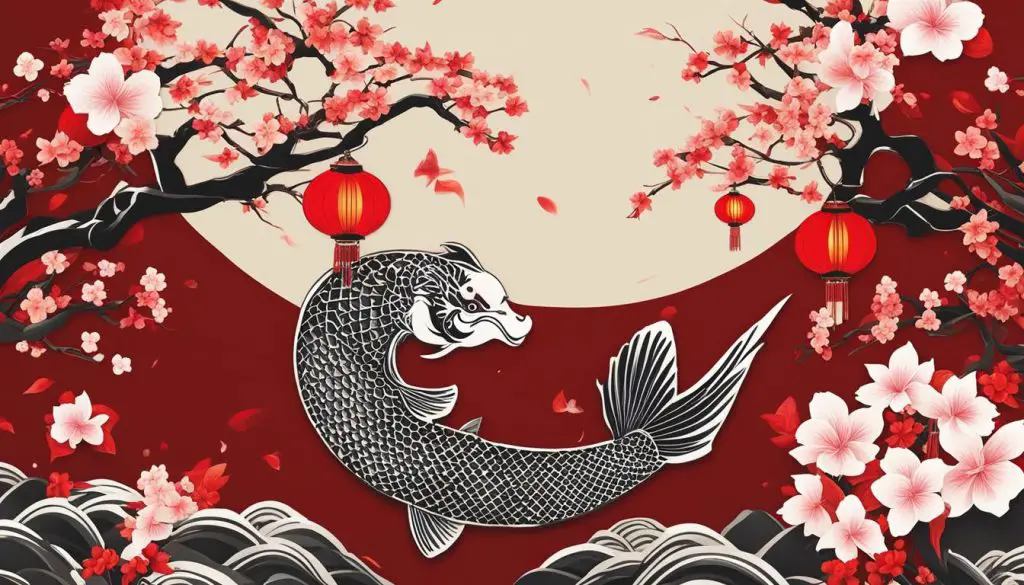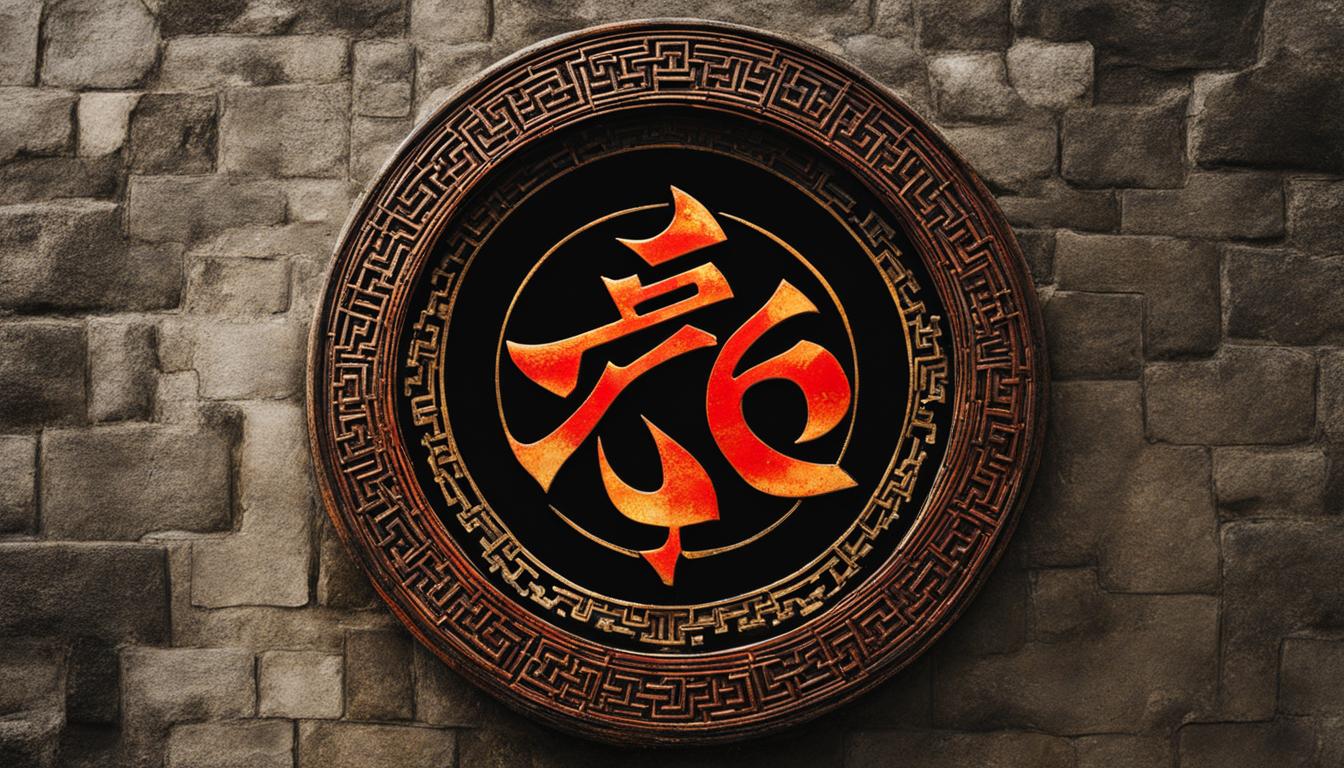In Chinese culture, beliefs and symbolism play a significant role in daily life. Many symbols are associated with luck and good fortune, including the word for ‘good luck,’ which is highly regarded. It is commonly displayed during Chinese New Year and is seen as a symbol of prosperity. But is it bad luck to have the Chinese word for good fortune? Let’s explore Chinese culture and beliefs to find out.
Contents
- 1 Chinese Symbolism and Luck
- 2 Cultural Beliefs and Luck in Chinese Language
- 3 Feng Shui and Luck
- 4 Superstitions Around Chinese Words
- 5 Conclusion
- 6 FAQ
- 6.1 Is hanging the Chinese word for good fortune upside-down considered bad luck?
- 6.2 What symbols are associated with luck and good fortune in Chinese culture?
- 6.3 Are there any words or phrases in Chinese that are considered unlucky or taboo?
- 6.4 How does Feng Shui influence luck and good fortune in Chinese culture?
- 6.5 What should I be aware of when using Chinese words to avoid bad luck?
- 6.6 What is the significance of cultural beliefs and luck in Chinese language?
- 7 Source Links
Key Takeaways:
- Chinese culture holds the word for ‘good luck’ in high regard.
- Hanging the character upside-down is believed to bring good luck.
- Chinese symbolism and luck are deeply ingrained in daily life.
- Words and phrases associated with luck are commonly used to express good wishes.
- Understanding cultural taboos can help navigate social and cultural situations respectfully.
Chinese Symbolism and Luck
In Chinese culture, symbolism plays a significant role in daily life. Many symbols are associated with luck and good fortune. For example, the number eight (八) is considered lucky because it sounds similar to the word for prosperity (发). The color red (红色) is also believed to bring good luck and happiness. Additionally, certain words or phrases in Chinese have positive connotations and are often used to express good wishes, such as 福 (fu), 恭喜发财 (gong xi fa cai), and 心想事成 (xin xiang shi cheng). These symbols and phrases are commonly seen during celebrations and special occasions to invoke good luck and blessings.
Chinese symbolism extends beyond numbers and colors. Animals, plants, and objects also hold significance in Chinese culture. For example, the dragon is a symbol of power, strength, and good fortune. The phoenix represents beauty, elegance, and rebirth. The peony flower is associated with prosperity and honor. These symbols are often incorporated into art, clothing, and home decor to attract positive energy and luck.
Quote: “In Chinese culture, symbols are more than just decorative elements; they carry deep meanings and cultural significance.” – Chinese Cultural Expert
When it comes to word choices, the Chinese language offers a variety of options to express well wishes and invoke luck. For instance, the word 福 (fu), meaning ‘fortune’ or ‘good luck,’ is often displayed upside-down during Chinese New Year as a way to symbolize the arrival of blessings. The phrase 恭喜发财 (gong xi fa cai), which translates to ‘wishing you prosperity,’ is commonly used during celebrations and festive occasions to wish others good luck and fortune. These choices reflect the importance of positive energy and blessings in Chinese culture.
| Symbol | Meaning |
|---|---|
| Number Eight (八) | Luck and Prosperity |
| Color Red (红色) | Good Luck and Happiness |
| Dragon | Power, Strength, and Good Fortune |
| Phoenix | Beauty, Elegance, and Rebirth |
| Peony Flower | Prosperity and Honor |
Cultural Beliefs and Luck in Chinese Language
In Chinese culture, language is not just a means of communication but also carries deep cultural beliefs and associations with luck. Certain words or phrases are believed to bring good luck, while others are considered unlucky or even taboo. Understanding these cultural beliefs is crucial to avoid invoking bad luck in Chinese symbolism.
Cultural Taboos
Chinese language is rife with cultural taboos that are rooted in superstitions and traditions. For example, the number four (四) is associated with death as it sounds similar to the word for death (死) in Chinese. It is often avoided in many settings, especially during festive occasions. Similarly, the color white (白色) is associated with mourning and loss, so it is best to avoid using it in celebratory contexts.
On the other hand, certain words and numbers are believed to bring good luck. The number eight (八), for instance, is considered lucky because it sounds similar to the word for prosperity (发). The color red (红色) is also associated with good luck and happiness. These auspicious elements are often incorporated into celebrations and special occasions to invoke positive energy and blessings.
Choosing Words and Phrases
When selecting words or phrases in Chinese, it is important to be mindful of their associations with luck. Using positive and auspicious words can enhance the overall message and convey good wishes. Words like 福 (fu), which means ‘fortune’, and 恭喜发财 (gong xi fa cai), which means ‘may you be prosperous’, are commonly used to express well wishes and bring blessings in various contexts.
| Lucky Words | Unlucky Words |
|---|---|
| 福 (fu) – fortune, good luck | 四 (si) – four, sounds like death |
| 恭喜发财 (gong xi fa cai) – may you be prosperous | 白 (bai) – white, associated with mourning |
| 吉利 (ji li) – auspicious | 倒霉 (dao mei) – unlucky |
Being aware of these cultural beliefs and avoiding words or phrases with negative connotations can help maintain a positive and respectful atmosphere in social and cultural interactions involving Chinese language. Embracing the richness of Chinese culture and using words and symbols that invoke good luck can enhance connections and foster harmony.
Feng Shui and Luck
In Chinese culture, Feng Shui is a practice that focuses on harmonizing energy in the environment to promote positive energy and good fortune. It is deeply rooted in Chinese beliefs and plays a significant role in daily life. The principles of Feng Shui are applied to various aspects of life, including home design, business, and personal well-being.
One of the key aspects of Feng Shui is the arrangement of furniture and objects to optimize the flow of energy, known as Qi. The placement of objects and the use of specific colors are believed to influence luck and prosperity. For example, placing a mirror facing the front door is said to attract positive energy and good luck.
“Feng Shui is based on the belief that the arrangement of your surroundings can affect your energy levels, mood, and overall well-being.”
In addition to the arrangement of objects, Feng Shui also emphasizes the importance of cleanliness and organization. Keeping the space clean and free of clutter is believed to promote good fortune and positive energy.
Feng Shui is a complex practice that requires careful consideration of various factors, such as the use of colors, the placement of objects, and the orientation of buildings. Many individuals consult Feng Shui experts or follow specific guidelines to create a harmonious and auspicious environment.

The Benefits of Feng Shui
Applying Feng Shui principles to your living or working space can have several benefits. By optimizing the flow of energy, you can create an environment that promotes well-being, prosperity, and harmony. Some potential benefits of Feng Shui include:
- Enhanced sense of balance and tranquility
- Improved focus and productivity
- Increased opportunities and abundance
- Reduced stress and enhanced overall well-being
Incorporating Feng Shui into your life can create a positive and supportive environment that aligns with your goals and aspirations. Whether you are looking to improve your personal life, enhance your career, or create a harmonious home, Feng Shui offers a holistic approach to inviting luck and prosperity into your life.
Superstitions Around Chinese Words
In Chinese culture, there are various superstitions surrounding the words used in the language. Certain words and phrases are believed to bring bad luck or have negative connotations, while others are considered auspicious and bring good fortune. It is important to be mindful of these cultural taboos and to choose words carefully to avoid any potential bad luck.
One example of a superstition is the avoidance of the Chinese word for ‘four’ (四) as it sounds similar to the word for ‘death’ (死). Many people believe that using or displaying the number four brings bad luck or even death. Similarly, the number thirteen (十三) is considered unlucky in both Western and Chinese cultures. It is often seen as a number associated with misfortune and should be avoided whenever possible.
On the other hand, there are words and phrases that are considered lucky and bring good fortune. For instance, the Chinese word 福 (fu), which means ‘fortune’ or ‘good luck,’ is highly regarded. It is associated with positive energy and blessings. Additionally, words like 恭喜发财 (gong xi fa cai) and 心想事成 (xin xiang shi cheng) express well-wishes for prosperity and success. These words are commonly used during celebrations and special occasions.
It is essential to be aware of these superstitions and cultural beliefs surrounding Chinese words to navigate social and cultural situations appropriately. By showing respect for these customs and choosing words that convey positive meanings, you can foster a sense of connection and harmony in Chinese culture.
Conclusion
Chinese culture is deeply rooted in beliefs and symbolism associated with luck and good fortune. It is a culture that thrives on positive energy and blessings, as seen in the significance of the character 福 (fu), meaning ‘fortune’ or ‘good luck’, and the use of auspicious words and symbols during celebrations and special occasions.
While there are no specific superstitions suggesting that having the Chinese word for good fortune brings bad luck, it is essential to be mindful of cultural taboos and avoid words or phrases that may carry negative connotations. Chinese language is rich in associations with luck, both positive and negative, such as the number four (四) representing death and the number eight (八) representing prosperity.
By understanding the symbolism and cultural beliefs surrounding luck in Chinese language, you can navigate social and cultural situations with respect and awareness. Embracing the positive aspects of Chinese culture and expressing good wishes through words and symbols can foster a sense of connection and harmony. Whether you are interacting with Chinese-speaking individuals or immersing yourself in Chinese traditions, this knowledge will deepen your appreciation for their culture and beliefs.
FAQ
Is hanging the Chinese word for good fortune upside-down considered bad luck?
No, hanging the character 福 (fu) upside-down is believed to bring good luck as it sounds similar to the phrase ‘good luck arrives’ in Chinese.
What symbols are associated with luck and good fortune in Chinese culture?
Symbols such as the number eight (八) and the color red (红色) are believed to bring luck and prosperity in Chinese culture.
Are there any words or phrases in Chinese that are considered unlucky or taboo?
Yes, the number four (四) and the color white (白色) are associated with death and mourning and are considered unlucky.
How does Feng Shui influence luck and good fortune in Chinese culture?
Feng Shui is believed to harmonize energy in the environment and promote positive energy and good fortune. The arrangement of furniture, colors, and objects can influence luck and prosperity.
What should I be aware of when using Chinese words to avoid bad luck?
It is important to be mindful of cultural beliefs and avoid words or phrases that may have negative connotations, such as the number four (四) or words associated with death.
What is the significance of cultural beliefs and luck in Chinese language?
Cultural beliefs and symbolism play a significant role in Chinese language, influencing word choices and the expression of good wishes and blessings.





